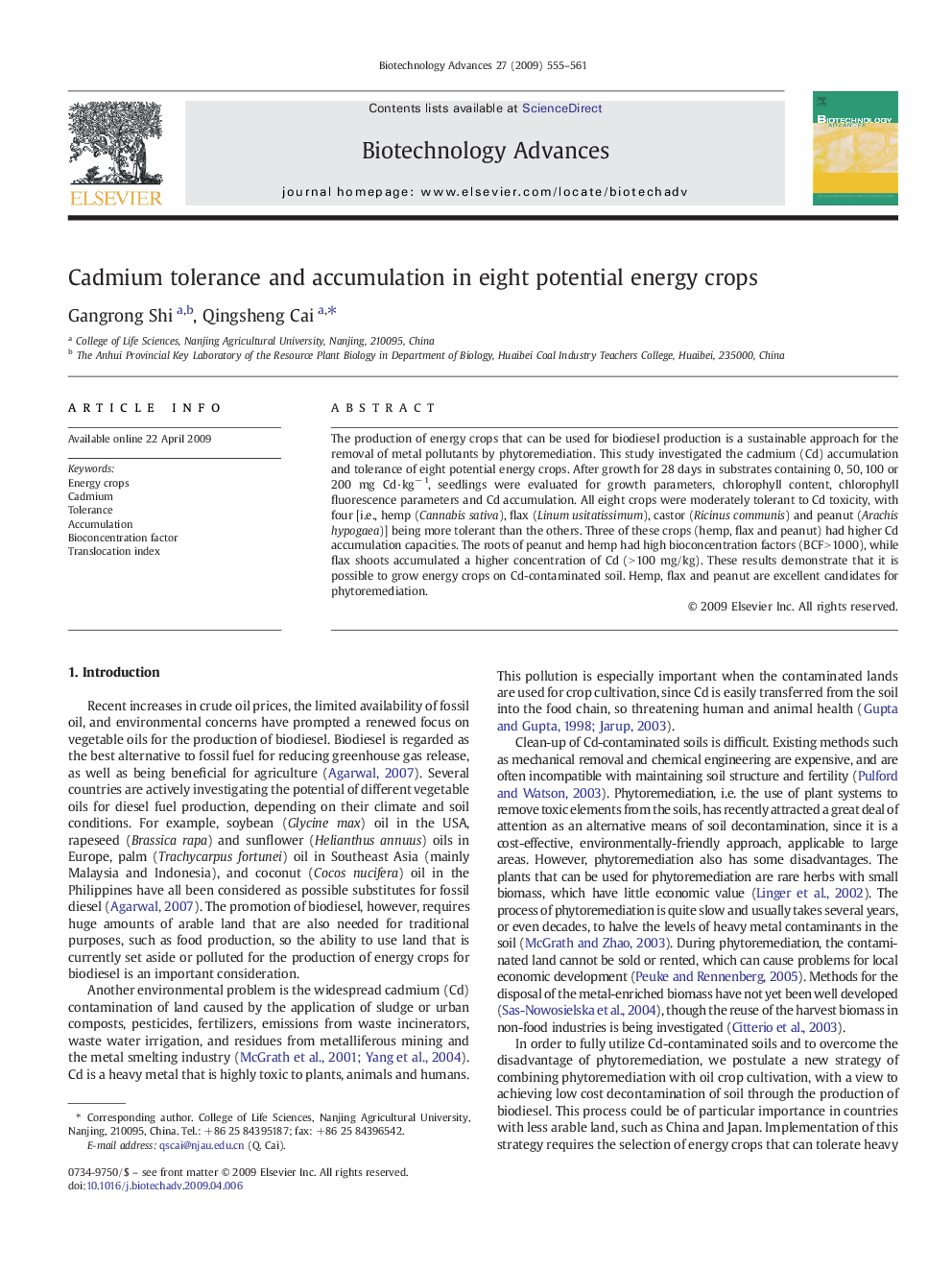| Article ID | Journal | Published Year | Pages | File Type |
|---|---|---|---|---|
| 14725 | Biotechnology Advances | 2009 | 7 Pages |
The production of energy crops that can be used for biodiesel production is a sustainable approach for the removal of metal pollutants by phytoremediation. This study investigated the cadmium (Cd) accumulation and tolerance of eight potential energy crops. After growth for 28 days in substrates containing 0, 50, 100 or 200 mg Cd·kg− 1, seedlings were evaluated for growth parameters, chlorophyll content, chlorophyll fluorescence parameters and Cd accumulation. All eight crops were moderately tolerant to Cd toxicity, with four [i.e., hemp (Cannabis sativa), flax (Linum usitatissimum), castor (Ricinus communis) and peanut (Arachis hypogaea)] being more tolerant than the others. Three of these crops (hemp, flax and peanut) had higher Cd accumulation capacities. The roots of peanut and hemp had high bioconcentration factors (BCF > 1000), while flax shoots accumulated a higher concentration of Cd (> 100 mg/kg). These results demonstrate that it is possible to grow energy crops on Cd-contaminated soil. Hemp, flax and peanut are excellent candidates for phytoremediation.
